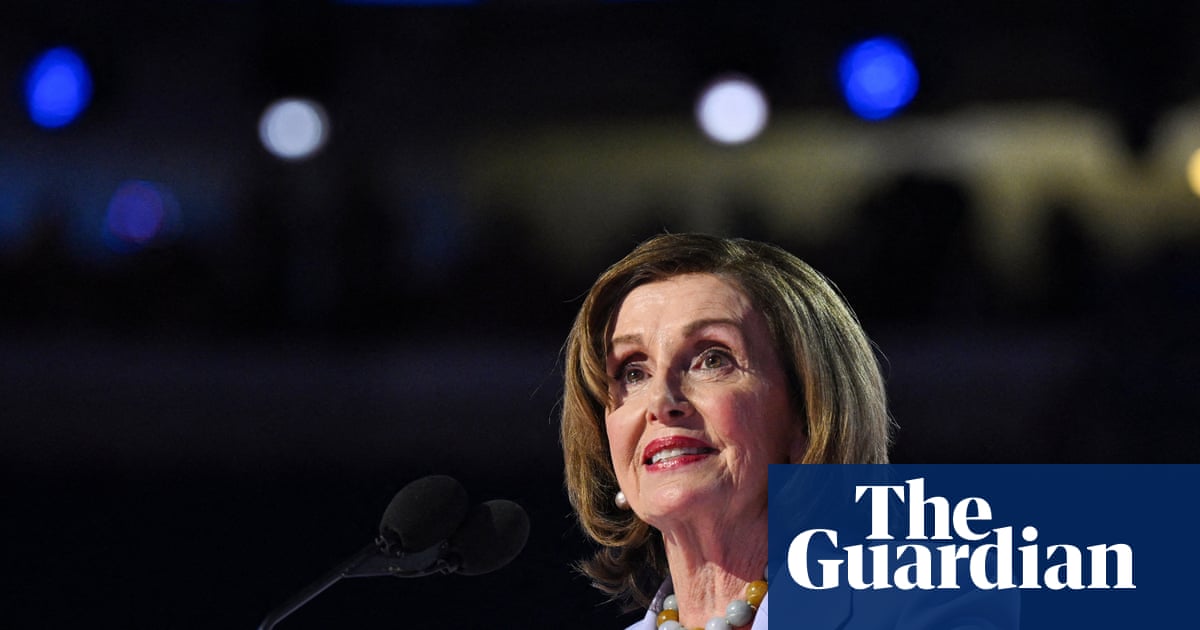By his own admission, Keir Starmer has focused intently on foreign affairs since entering No 10, mediating between Europe and the US.
But a year after his election, the British prime minister is standing out on the global stage for another reason: his approval rating at home is among the lowest of any western leader.
A pan-European survey conducted at the end of August by the polling company YouGov found just 22% of British people have a favourable opinion of Starmer, in contrast with the 69% who view him unfavourably – a net rating of -47%.
The polling was conducted before the resignation of the former deputy prime minister Angela Rayner forced Starmer into a cabinet reshuffle.
Only one other European leader is more unpopular at home than Starmer: Emmanuel Macron, the embattled French president of eight years whose party lost the most recent legislative election.
YouGov found Macron has a net favourability rating of -55% among French adults.
The pair’s dire ratings are significantly lower than other European leaders – the only consolation being no one enjoys a positive rating.
Giorgia Meloni, the Italian prime minister, posted net approval of -22% after three years in the job, while the Spanish prime minister since 2018, Pedro Sánchez, sits at -31%.
But perhaps most galling of all to Starmer’s aides will be how his poll numbers compare with those of Donald Trump.
YouGov’s US opinion tracker finds that, for all the chaos of his second term, Trump currently has net favourability of -12%.
US presidents historically have tended to enjoy higher popularity than British prime ministers, but the gulf between Trump and Starmer is particularly wide.
Starmer’s relatively weak position compared with his western counterparts follows a decline in popularity that is unprecedented for a new prime minister in modern British politics.
No governing party as far back as the 1980s has seen its polling fall so far in its first year in power.
Since the general election, Labour has dropped from polling at 37.5% in July 2024 to 23.3% in June 2025 – a fall of 14.2 points in just 11 months.
That is the worst for any government since 1983, when data from PollBase begins. Before this, the biggest recorded drop in popularity for a new government was in 1992, when John Major’s Conservatives fell 9.8 points in 12 months.
The fall has paved the way for Reform UK to take the lead in the polls, with Nigel Farage’s party now garnering the support of about 30% of British voters.
Starmer’s government has attempted to win some of them back with tough policies on immigration and asylum, most recently with the suspension of the UK’s family reunion policy.
But a deeper dive into the current voting intention of previous Labour voters reveals that Starmer’s support has collapsed to the benefit of parties on the right and the left.
An average of polls conducted by YouGov over August shows that 14% of those who voted for Labour at the 2024 general election now intend to vote for Reform or the Conservatives.
But a much higher total share have been disillusioned enough with Starmer to move to other progressive parties – 13% to the Lib Dems, 10% to the Greens and 3% for the nationalist parties in Scotland and Wales.
It means 26% of Starmer’s 2024 coalition are defecting to the left.
These polls do not yet reflect the impact of Your party, the breakaway leftwing group being set up by the former Labour leader Jeremy Corbyn and MP Zarah Sultana.
A survey conducted by Ipsos last month suggested as many as a fifth of Britons would consider voting for Your party, rising to a third among Labour voters – more than the current extent of leftwing defection.
There will be some in Starmer’s team who say this data does not mean he must change course. After all, there is a counter argument: how many more would be defecting to Reform or the Tories without overtures to the right?
A further consideration may steel the prime minister – falling popularity while in power is inevitable, as seen in the polling histories of his counterparts.
When comparing Starmer with Macron, the UK prime minister’s approval is tracking the French president’s almost exactly during his first year.
Macron’s government suffered a sharp drop in approval after his election in 2017, amid economic discontent and the gilets jaunes protests.
But the French president went on to recover this lost ground by the end of his first term in 2022, amid economic recovery and the dual crises of the Covid pandemic and Russia’s invasion of Ukraine.
Perhaps even more relevant to Starmer is the trajectory of the German chancellor, Friedrich Merz.
Merz too is fighting off an ascendant far-right party, the AfD, and he too has seen a similar sharp drop in polling in his first months.
Even Starmer’s rightwing counterparts – Trump in the US and Italy’s Giorgia Meloni – have been unable to avoid waning approval over time, though they both entered office with higher ratings than Starmer.
As for how Starmer might mount a recovery, there is another recent piece of polling that explains the current British mood.
According to Ipsos’s most recent report on populism, published in June, Britons are now among the most likely in the west to agree that “a strong leader willing to break the rules” is needed to fix the country.
This may go some way to explain Farage’s recent success, given his disdain for many conventions in British politics and his commitment to exiting some international agreements.
But the Ipsos results also show that, elsewhere in Europe, support for a strong rule-breaker has diminished.
“In France, the desire for such a leader has plummeted from 80% to 42% over the last decade, with similar downward trends observed in Italy and Poland,” said Simon Atkinson, the chief knowledge officer at Ipsos.
“This could reflect a growing weariness with the disruptive nature of populist politics and a renewed appreciation for stability, particularly in countries that have experienced significant political upheaval. For Keir Starmer and wider British politics, these findings present both a challenge and an opportunity.”
In perhaps an attempt to better project strength, the prime minister has returned from the summer recess with a major shake-up in Downing Street which, in effect, has seen more power centralised in his office.
It is a gamble that may either help him reassert authority or confirm the view of voters already drifting away: that Britain’s new prime minister is not the strong leader they are looking for.

 3 months ago
57
3 months ago
57

















































